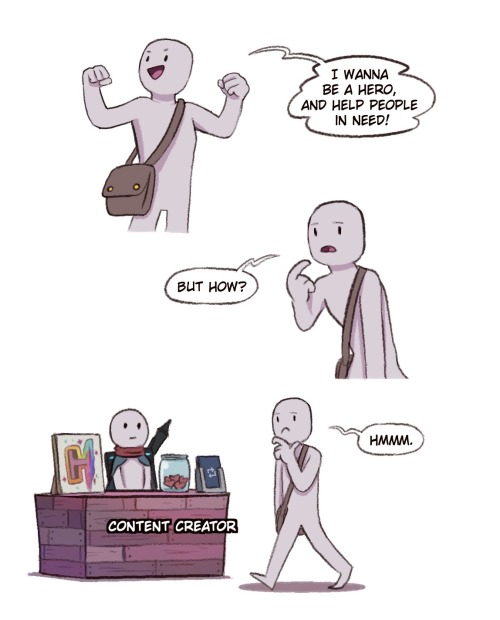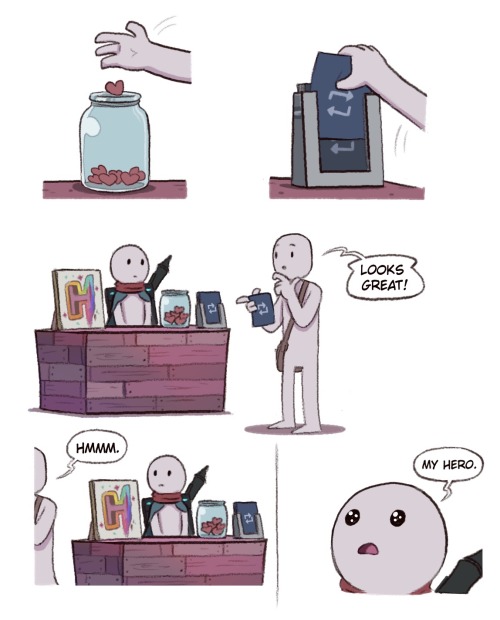I Forgot To Fucking Post This But Here Ya Go, Some Extras. Enjoy
I forgot to fucking post this but here ya go, some extras. enjoy
-
 sugarpea7 liked this · 1 year ago
sugarpea7 liked this · 1 year ago
More Posts from Itsleathelion457
Things that hit different after Touya's backstory reveal
I gotta give credit where credit is due. MVA is one of the best and most well written arcs of the series not because it's villain focused but because Horikoshi truly built it well. There's a lot of foiling going on and each League member gets a turn at being confronted by their shadow, or in other words, by a certain narrative they're trying to reject. For Toga, it's the idea that she's a deviant, someone whose "normal" isn't normal for everyone else. For Spinner, it's the fact that he's weak on his own and can only lend support to others. And for Dabi, it's the desperation to prove the worth of his quirk to someone who wants to exploit it for their own gain. But this scene in particular really hits different now:

when you have the full context for it. Before the reveal, the most commonly accepted theory concerning Touya's "death" was a training accident. Basically, the result of Endvr pushing him too hard. So the foiling with Geten worked, but not 100%. You saw Geten's desperation to prove his worth to an army that just considers him a pawn and thought: well, for Dabi the training had to be a duty. Surely, there was never a point in time where Touya decided to train on his own in order to satisfy his abuser's wishes and make him proud.
Right?
Well, Hori says. Think again.


And the foiling doesn't even stop there, but it's also told in the small details. For example, it's the fact that Geten had enough of an emotional attachment to Redestro to unlock a power up of his quirk in order to be helpful, to be of assistance to Redestro in times of need.

… In a fashion that's not too dissimilar to how Touya unlocked the blue flames in a highly emotional situation where he just wanted to prove useful to his father.

Another prominent aspect of the foiling between those two is the pressure to achieve perfection and how much it shaped their whole life. Those who get to sit at the top of the Liberation Army are held to a standard of “worthiness” and strength that's frankly inhumane. And they're asked to keep it up to avoid "disappointing" their boss, because, hint hint nudge nudge, they'd be replaced. We can infer this from a number of hints:

It's the fact that Skeptic frenetically insists that he only ever failed once, and then promptly tries to turn his shortcoming into a chance to succeed and make Redestro proud again.
This insane standard of perfection is also shown in Geten's words:

If you don't have a strong enough superpower to be of use to the cause, then your existence is as good as meaningless. Sounds familiar, yet?

To Touya, his life lost all its purpose when he was tossed away, because Endvr held all his children to the impossible standard of carrying his ambition without any “imperfections”:

And being unable to meet it meant being worthless. Cause again, for pre-atonement Endvr and the Meta Liberation Army, “a person's only worth lies in the strength of their superpowers.” As further emphasized by the way Geten's words directly parallel Endvr's mindset.
So when Dabi reacts with homicidal rage to Geten's taunts, he's not just reacting to the umpteenth reminder of his status as a “failed masterpiece”. He's also rejecting the naivety of his past self, and of that boyish wish to please his father that never quite got fully overwritten

So basically... chapeau, Hori. You got me there. Well done foreshadowing only hits you at your second reread, and I have to admit that mva really delivers on that front
It’s edited, so I’m confident in this.
You want ideals? He’s had ‘em!
An Exploration of Tomura’s Ideals (Part 1)
We really don’t give Shigaraki enough credit for a certain line that was overshadowed by what he said prior to it.

So, this is a very big line for Shigaraki, right? He states this, says it to /Endeavor/ of all people, and also links it to his father’s violence against him. BUT what does he say right after?

One of the things that has consistently been a problem for Shigaraki is people absolutely doubting his intentions and ideals. They oversimplify his action of wanting to destroy everything as destruction just for the sake of it. And perhaps he doesn’t himself realize he’s had convictions and ideals from the start. This has happened right from the very beginning.
This essay is devoted to documenting how Shigaraki’s ideals have always been present from the very beginning and how both ‘allies’ and foe alike have consistently denied their existence because Tomura’s actual ideals are incredibly linked to him feeling compassion and sympathy for others, which is not a trait either AFO would have wanted encouraged nor would his heroic foes want acknowledged.
I. How Shigaraki is constantly portrayed as a manchild

This entire page is the first time we see any sort of ‘villain’ ideology. Tomura is saying that the heroes are just as violent and disruptive as the villains, and that their violence is only reactionary and thus merely prolongs or adds to the cycle of violence - and that the designation of good and bad, in that light, is not a real designation. The Fallen Angel scans (RIP) put it more bluntly;

Tomura has always been upset at the way heroes are lauded by society for the violence and pain they cause. Because he’s been on the receiving end of that, whether by people ignoring him as a blood-covered five year old as a child so that heroes ‘could do their job’, or his father taking out his trauma over his mother choosing heroism over him on his own child.
But notice how All Might immediately disregards anything Tomura says? And how Tomura readily agrees? He’s standing here, a few days after turning twenty, meaning an adult in Japanese society, and he’s told that his feelings aren’t genuine. Kurogiri and All For One believe that to be the case too, which is why he’s being ‘educated’.

Stain throws aside Tomura’s plans as ‘a tantrum’, because Shigaraki tells him he wants to destroy what he doesn’t like. No one really asks questions as to why he doesn’t like the society that holds up All Might, not those who ‘care’ for him and those who don’t, so his actual ideals and feelings go unacknowledged or, frankly, infantilized. The framework here is that Shigaraki is a manchild, so his motivations can’t be complex, or above wanton destruction and the satisfaction he can get from it.
Stain is particularly important here because he’s also the first in a series of three adversarial villains to disregard Tomura’s capacity for holding ideals. Once again Tomura is asked his convictions, and first denies having them, but then states once more that he wants to ruin the society that made All Might.


Like everyone else, Stain then says, Shigaraki has something that needs to be nourished, a ‘seed of warped conviction’. It’s really fascinating that weeks after becoming an adult, Tomura is very much seen as a child by everyone around him. Kurogiri thinks of him as a child to be guided, All For One’s title of Sensei speaks clearly to his relation of him as someone who has something to ‘teach’ Tomura. Simply put, even someone who cares about Tomura, like Kurogiri, doesn’t think he has anything he believes in but a childish need for destruction. And this perception is nurtured too - from how Ujiko talks to him later on.
I do want to also say that Tomura doesn’t protest against being treated like a small child or told all his actions are devoid of any ‘true’ meaning besides a need for wanton destruction. Which is why he keeps saying he doesn’t “have convictions” to people. You can see that down below, in how Overhaul (the second of the adversarial villains) simply insults Tomura’s way of leading and calls it daydreaming, while Ujiko calls him a child with friends from the wrong crowd.

Why? Because he was groomed to reject the idea he had any ideals. In one of the scenes where Tomura has his third ‘adversarial’ villain encounter, with Redestro, he both affirms and rejects his grooming and we see in a flashback that the belief he has no ideals was literally instilled into him from the beginning.

It’s AFO’s prerogative to have an empty vessel full of hate, which is why from the start he starts telling Tomura that all he can do is destroy and all he wants to do is destroy. That morals and ideals are meaningless and only seek to control others. Tomura isn’t exactly as a manchild as much as he’s forced to be this way by AFO, with Ujiko and Kurogiri upholding that same grooming (the latter being programmed to do so). And the world reacts accordingly despite Tomura lack of outward disagreeing. As will be explored in part 2 of this essay, Tomura shows a paradox where his words, when questioned, mostly agree and voice his grooming and abuser’s opinions while his actions certainly don’t.




